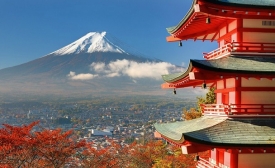japan
On 16 May 2016 Russia’s Deputy Prime Minister and Presidential Envoy to the Far Eastern district, Yury Trutnev, met with officials from Japanese and Russian energy and metallurgical companies. The meeting followed a summit between Japanese Prime Minister Shinzo Abe and Russian President Vladimir Putin to discuss enhancing bilateral ties. [...] Public diplomacy is also another area of great potential between the two countries.
Colleges in the U.S. are opening their doors — and their financial aid — to Syrian refugees. Over the past year, at least a dozen schools have promised to cover full or partial tuition for Syrian refugees who are accepted for enrollment. They join a coalition of more than 60 colleges that have started providing scholarships to Syrian students since the country’s civil war began in 2011.
That is the essence of the change in global politics that enables the rise of public diplomacy. The theory is not complicated, but putting public diplomacy to work requires imagination and persistence.
KBTC will broadcast a special week of Japan’s English language news program, NHK Newsline, at 6pm May 23rd through May 27th. In addition to headlines from around the globe, this 30-minute news program will include news and analysis on location from the 42nd G7 Summit in Ise-Shima, Japan. The Ise-Shima Summit is the first G7 Summit to be convened in Asia since the summit in Toyako, Hokkaido eight years ago.
Prime Minister Shinzo Abe on Friday said Japan will accept 150 Syrians over five years, treating them not as refugees but as exchange students. The initiative accompanies other efforts by Japan to help stabilize conflict-stricken Syria and its announcement comes days before Group of Seven leaders gather for a summit in Mie Prefecture.

Event was co-sponsored by the Japan Foundation and Keio University.
A security strategy consistent with this circumstance would be one that is more multi-faceted, that deals with long-standing issues that affect relations with its neighbours in the region. [...] its diplomacy and foreign policy in years to come has to be welded into Asian coalitions.
The article said Pham Quang Hung, a first secretary for educational affairs at the Vietnamese Embassy in Tokyo started studying Japanese at Foreign Trade University in Hanoi in 1994. He never imagined that Vietnamese children would one day be able to learn the language at elementary school.







